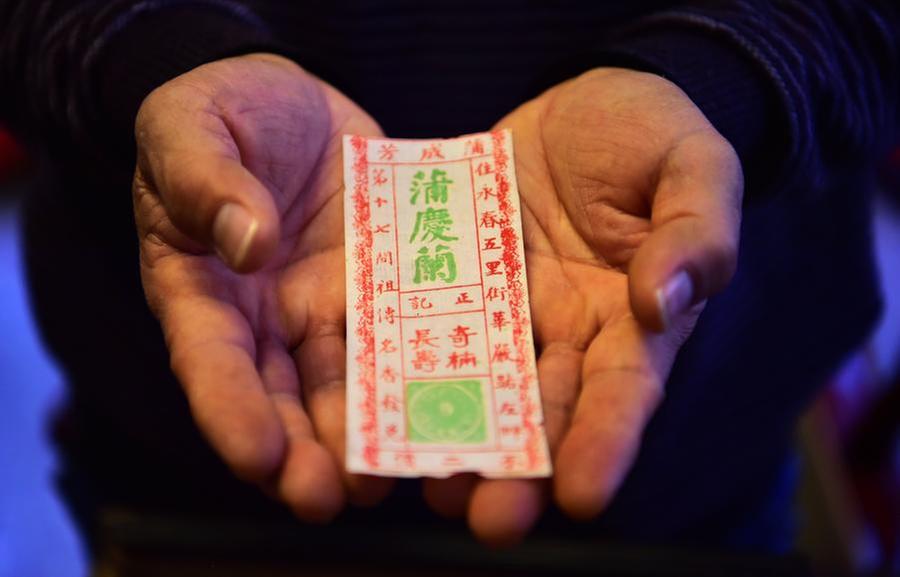Incense-maker passes on 150-year-old Arabic scent

 |
| Pu Lianggong still uses an old packaging for his incense. [Photo/Xinhua] |
Despite its Arabic origin, Pu's incense is different from the scented chips called "bukhoor" in most Arab countries. Similar to Chinese stick incense, it is bamboo sticks wrapped by grinded spices.
Today, there are machines that can make dozens of kilograms of incense in an hour, but Pu Lianggong insists on making incense by hand. The adept craftsman is never tired of selecting spices, pulverising ingredients into fine powder and applying the powder to bamboo sticks.
Incense has been widely used in China in ceremonies and as medicine for more than 2,000 years. Influenced by the Pu family, incense making has become a local industry in Dapu Town of Quanzhou City. There are about 300 incense manufacturers in Dapu, with more than 30,000 people working in the industry.
- Tianzi Mountain colored by autumn magic in Zhangjiajie
- International students participate in ginkgo fashion show at Liaodong University
- China expands PhD talent program to boost sci-tech innovation
- Fostering future cooperation: China-US educational exchange
- Commemoration of Taiwan's restoration fully reflects people's will: mainland spokesperson
- New Taiwan affairs spokeswoman holds 1st news conference




































